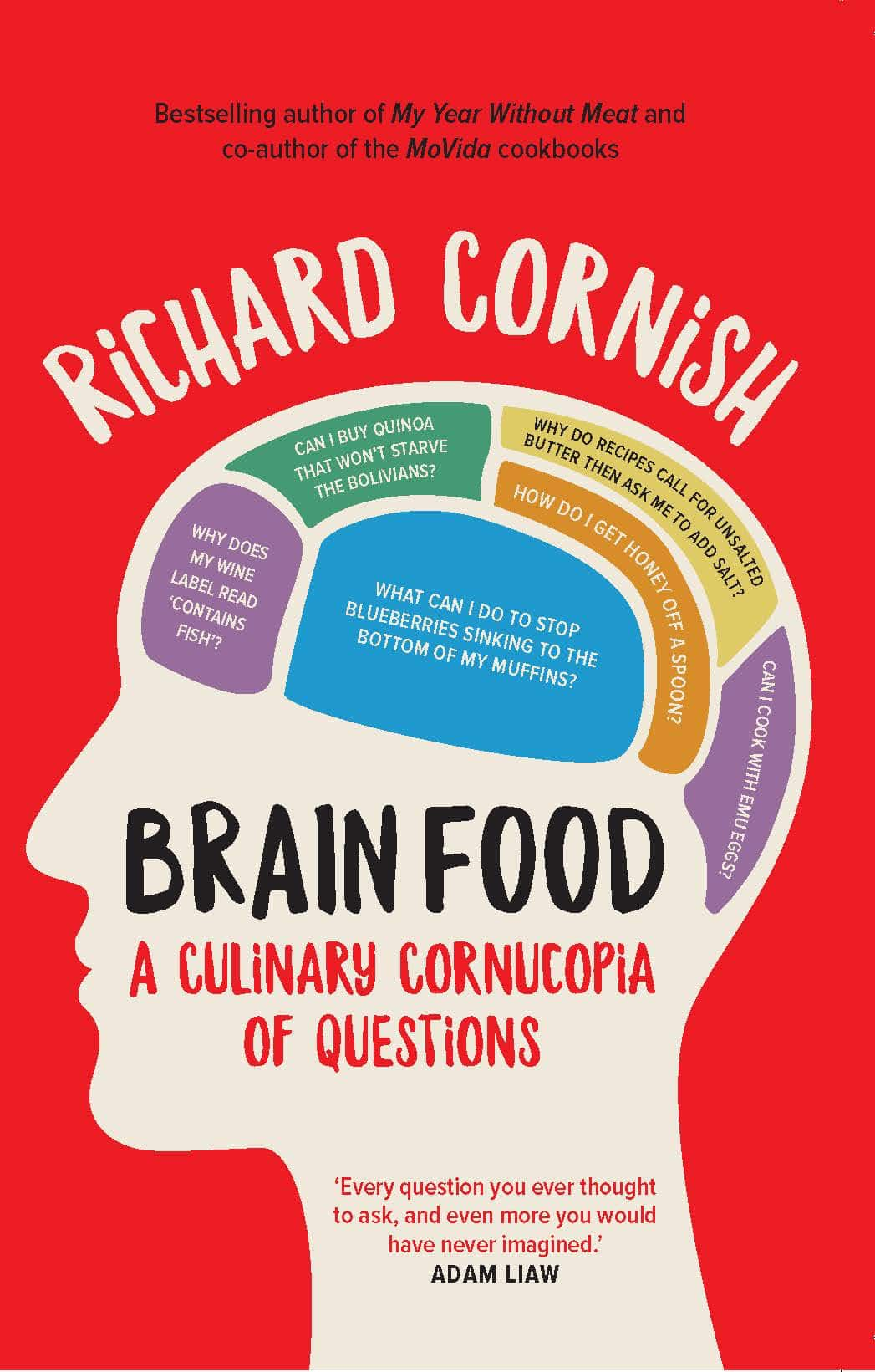Growing up on a farm eating broad beans in the spring, berries from the brambles along the creek and mushrooms from the paddocks, Richard Cornish always knew where his food came from. "We caught flounder from the beach, sourced lamb from the neighbours, beef from our herd and as much home-made cream and yoghurt as we could make from our rich milk," the author and food columnist tells SBS.
"When I moved to the city, food tasted different. It didn’t have any flavour. I wanted to know where our food came from and why it tasted different depending on where it was sourced."
And hence an interest in science, botany, chemistry and physics was born, a lot of which meant blowing up and burning things on the farm, Cornish tells. This deep-seated curiosity sparked his now famous Brain Food columns (read by over 250 000 Australians every week) and more recently, a book; Brain Food: the best foodie facts and kitchen conundrums (Melbourne University Press - RRP $19.99/ ebook: $11.99). It got us thinking: are mussels really for the bin if they don't open? And why does cabbage smell so bad?

What are the most popular questions you receive via your brain food columns?
Why are my eggs rubbery? (Too much heat too quickly.) Why are my scones tough? (Too much agitation of the dough causing the gluten to develop, making them hard.) Why are my muffins too tough? (See scones.) Why is it okay to eat pink duck but not pink chicken? (Pink chicken is raw and might contain living salmonella. Duck breast is muscle containing a lot of myoglobin—the stuff that helps bring oxygen to the muscle fibres. It is rich in iron so it remains pink even when cooked to 75°C). Why does cabbage/Brussels sprouts/cauliflower smell bad when I cook it? (Because you are overcooking it, creating new and odiferous compounds. These vegetables are at their healthiest and tastiest when just steamed a little and served with lemon juice and olive oil dressing.)
We're so quick to bin foods past their best-before date! What should be be holding onto?
Salt, pepper, flour, spices, anything in a tin. Raw vegetables and fruit. Anything dried. Hard cheese. In that order. Anything that contains water and is edible can be a food source for bacteria. If you have a good understanding of the two basic rules—under 5 or over 60 degrees, and when prepping food follow the ‘3 Cs’: Cold, Clean and Quick—you should be okay.

What are the top three food myths of all time?
1. X (insert name of latest super food) will save your life! No it won’t! But as part of a balanced diet with lots of exercise, less stress and really good genes you may have a long and happy life.
2. If a cooked mussel won’t open, throw it away! This was a mistake introduced into our cooking knowledge by a celebrity chef. It introduced fear and ignorance about mussels—throw out ones with broken shells. Tap ones that are gaping open. They should close, even just fractionally, as this means they are still alive. Ones that don’t move at all, I throw out. Rinse and debeard, then cook and enjoy. New Zealand Green lipped mussels are precooked and frozen and will never move—even if you put 240 volts through them.
3. Don’t go for a swim until 30 minutes after you’ve eaten or you will get a cramp and drown. It’s not necessarily so much food related but it shows a very good way for parents to negotiate a little quiet time to enjoy the end of a meal in peace.
The best piece of food wisdom ever imparted on you?
Dure Dara, a great maitre’d once told me when ordering from a menu, ‘Choose the first dish that takes your eye’. A nonna told me only to put as much food on my plate as I could hold in my fist and Gabriel Gate once told me never to eat anything in a packet or tin unless it was pulses, pasta or tomatoes.
And the best piece of dinner party trivia you can give us, please.
Our tongues are hardwired to detect amino acids such as glutamic acid—something that exists in meteorites—which is believed to have kickstarted life on Earth.
Lead image: Mussels in white wine
Brain Food by Richard Cornish is available now MUP. RRP $19.99, Ebook $11.99
SBS Food is a 24/7 foodie channel for all Australians, with a focus on simple, authentic and everyday food inspiration from cultures everywhere. NSW stream only. Read more about SBS Food
Have a story or comment? Contact Us

